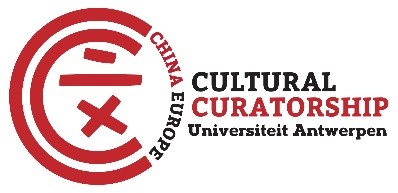The University of Antwerp is Launching a Unique Postgraduate Program on China-EU Cultural Curatorship

Within the framework of the CCSC project, The University of Antwerp is launching a new and unique postgraduate program on China-EU Cultural Curatorship in the academic year 2020-2021.
The University of Antwerp is actively promoting language and interculturalism. In the Faculty of Arts, all departments support the inclusion of intercultural communication and competences in their programs. Since 2013 the Faculty started to offer the program Chinese culture and language within the Department of Applied Linguistics. At the same time, the University of Antwerp has a deep interest in fostering the nexus arts and scholarship. The Antwerp Research Institute for the Arts (ARIA) supports the collaboration between the Antwerp Schools of Arts and the University of Antwerp.
The China EU cultural curatorship program is grounded on the synergy between the Faculty of Arts and ARIA with the participation of distinguished and passionate scholars from both institutions. The program will be offered to Chinese and European students at the academic year 2020-2021. In semester 1 Chinese and European students attend together lectures and workshops given by both academics and practitioners in the creative and artful campus of the University of Antwerp. In semester 2 students have the chance to test out the curatorial knowledge and skills in an organization, cooperative or company. European students have the occasion to go to Southwest China for an internship in art centres, NGOs or micro-entrepreneurial companies in coffee and tea cultures, jewellery design and cultural heritage. Chinese students have the chance to gain curatorial experience in museums, galleries, fashion design, floral art, etc. in Antwerp and other parts of Belgium and Europe.
Curating
Curating is ubiquitous today. Since the 1990s it has morphed into a creative activity. A “curator”, from the ancient Latin meaning of “attending to, caring for” is an impassioned co-creator who nurses the relationship between artists/artisans and the various public spaces they operate in. The curator takes care of art and material culture, but at the same time places them in a larger context that frames objects, experiences and memories from an intellectual, historical, social and inter-cultural viewpoint. The cultural curator is increasingly both a knowledge creator and a communicator. As knowledge creator s/he experiments with different formats, different ways of experiencing while creating different meanings. The contemporary curator challenges old formats by re-inventing novel ones that often build on the history and previous experiences.
As a communicator s/he is able to convey the rich curatorial data to a larger public both on- and offline. So, curating today means also taking care of (im)material culture, of social relationships, (non)urban interactions and of cultural politics. Or in the words of ARIA professor Pascal Gielen, ‘Since we know that not the economy, but culture is the base of social bonds and societies we need to take material and immaterial commons as the primordial resources to build relations with each other. In times of growing neo-nationalism and hyper-global economic competition mutual understanding is pivotal. Global markets fail because they do not recognize nor do they take care of local cultural differences. So, we need professionals who can deal with care with different cultural values and of the fundamental ambiguities which are inherent of every culture. We need curators who can co-imagine and co-create the political turn from a destructive global market towards a resilient civil society.’
Unique, Creative and Global
This program is unique as it goes beyond mainstream curatorship programs that operate within the museum sector while focusing on culture with a capital C. The uniqueness of our program is that we adopt an expanded notion of curatorship and art by turning our gaze also to (im)material culture, social relations and cultural politics embedded in the (non)urban interactions. The creativity of the curator is key in our program in that s/he conceives and creates the own idiosyncratic lifeworld while at the same time able to communicate, present and/or sell the art or artisan output in the different strata of society, including the market.
The program targets European and Chinese students with an open and global perspective and thus contributing to a better understanding and mutual inspiring practices. This openness requires insights and competences in intercultural communication. “The dynamic and process-oriented view on “curatorship” as “taking care of” and its constant contextualization are essential tools that allow you to go out and about and find your way in the very diverse world that we are living in. Flexibility, adaptability and tolerance of ambiguity are attitudes that are crucial because developments in science, technology, communication are increasingly swift and radical. We are no longer on one long train track where we can sit back and relax: we’re commuting on a hectic, fast-paced subway system that requires changes, split-second decisions and real-time information management. Good communicative skills are essential here”, dixit Professor Dieter Vermander, an expert on intercultural communication.
Why China?
Making space and time for deep physical, intellectual and artistic encounter is all the more important in an increasingly polarized world especially since there are increasing voices calling for a decoupling of the West from China. Not only is this hard to implement but it is not desirable. According to Prof. Ching Lin Pang, the academic director of the Program: “Understanding China – and more specifically being able to make sense of the current Chinese society in transition – is key to understand the world in the 21st century. As China is often the forerunner of societal changes – turbo speed urbanization, nexus cultural innovation and the market, digitalization, Artificial Intelligence, lockdown coping strategies – we can learn from China how to be flexible and adapt adequately to sweeping and unexpected changes in society, while taking into account our values and experiences. In other words, you do not need to become a China-lover, but you need to be well-informed about the changing times”.
For more information, please contact Prof. C.L. Pang, Academic Director, China EU Cultural Curatorship Studies Program: ChingLin.Pang@uantwerpen.be
